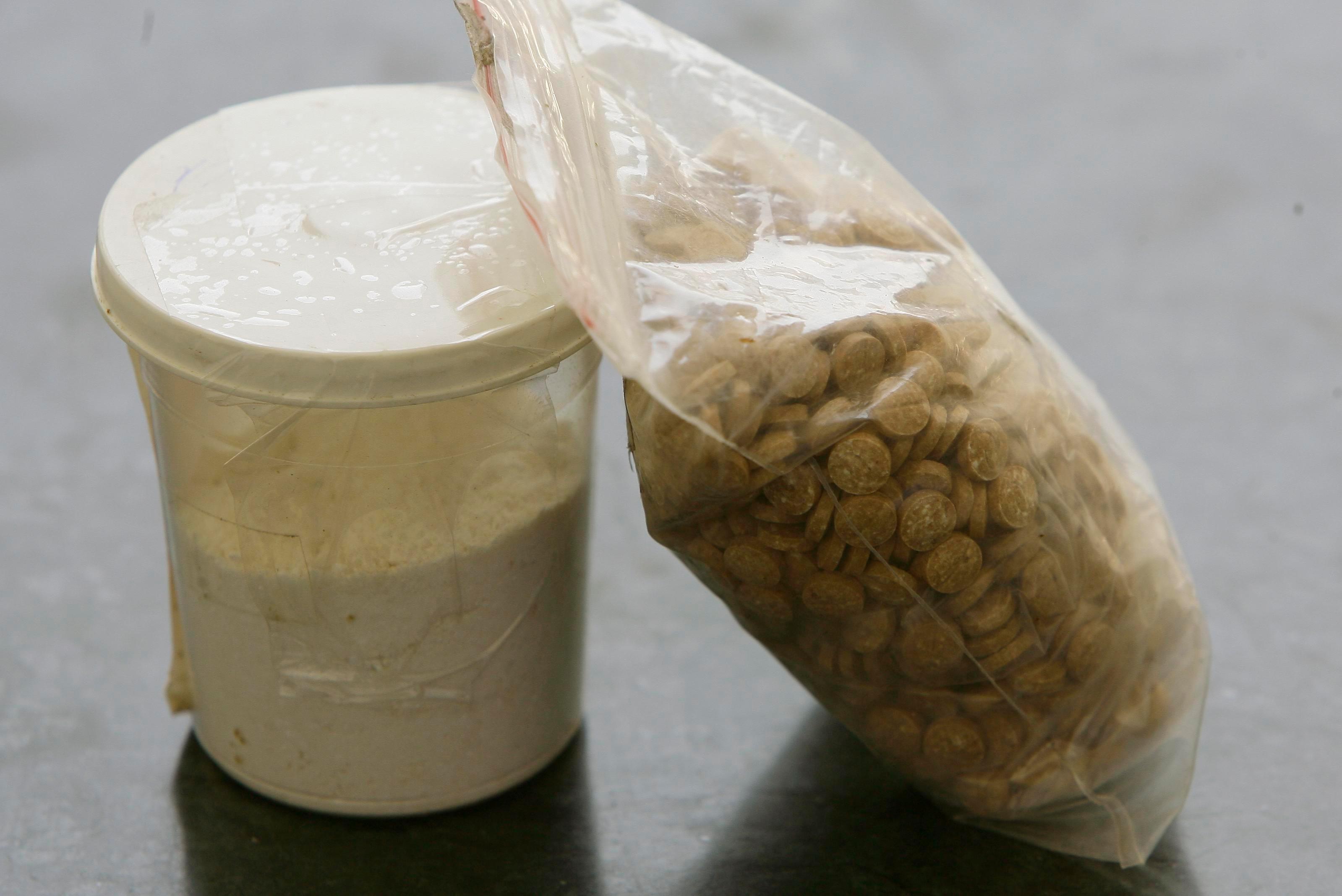ISIS fighters have been using a drug called Captagon, dubbed “chemical courage”, to stay alert in battle.
So what is the substance, and what effect does it have on users? Here’s what you need to know…

What is Captagon?
Captagon is a psychostimulant which is made of a combination of amphetamine and theophylline.
It is just one brand name of a group of drugs known as Fenethylline.
The drug came into the mainstream in 1961, and was used for around 25 years as a milder alternative to amphetamines.
It was used to treat kids with ADHD and, less commonly, for narcolepsy and depression.
Unlike amphetamines, Captagon does not increase the patient’s blood pressure – meaning it could be used to treat those with cardiovascular conditions.
However, it is highly addictive – and became illegal in most countries in 1986.

What effect does Captagon have?
Captagon keeps users awake for long periods of time.
It also makes users feel energetic and happy – which is why it has been dubbed “chemical courage”.
Lebanese psychiatrist Ramzi Haddad told the Guardian the drug produces “a kind of euphoria – you’re talkative, you don’t sleep, you don’t eat, you’re energetic”.

Is Captagon still available illegally?
You’d struggle to get your hands on it here in Britain but Captagon is a popular recreational drug in the Middle East.
It is made cheaply, with a street value of between £4 and £15, in countries including Jordan, Labanon, Turkey and Syria. Fake versions of the drug are also widely available.
In October 2015, Prince Abdel Mohsen Bin Walid Bin Abdulaziz, of Saudi Arabia, and four others were arrested in Beirut on suspicion of drug trafficking.
Two tons of Captagon pills and some cocaine were allegedly found aboard a private jet scheduled to fly to the Saudi capital of Riyadh.

How is Captagon being used in Syria?
Addiction to Captagon is rife within the ranks of ISIS in Syria, according to a probe into the “jihadi drug” by the Saudi Pharmaceutical Society.
Suicide bombers, like Manchester terrorist Salman Abedi, are said to be pumped full of drugs before they are sent on a mission, giving them red eyes and a distinctive look of confusion.
The drug turns the terrorists into “unforgiving killing machines”, Arab News reports.
The drugs often leave extremists suffering from a crippling addiction, further boosting their reliance on their cruel jihadi masters.
According to reports, a growing number of demoralised Syrian citizens have also resorted to taking the drug.

A massive shipment of the drug was seized in France for the first time earlier this year, sparking fears that ISIS could be forming Mafia-style organised crime gangs in the country.
Some 350,000 tablets of the amphetamine-based Captagon were first found at Charles de Gaulle on January 4.
On February 22, a further 300,000 were found – making a total of 135kgs of Captagon with a street value of £1.4 million.
In both cases, the drugs were hidden within industrial steel moldings destined for Saudi Arabia, via the Czech Republic, and Turkey.
[“Source-thesun”]
